






Montecatini
Verified Center
This provider's information has been quality-checked by Recovery.com's Research Team for accuracy and completeness, including center verification through appropriate third-party organizations.
Treatment Focus
You can get treatment for eating disorders at this center, helping you navigate symptoms, build coping tools, and restore your physical health under expert care.
Primary Level of Care
Offering intensive care with 24/7 monitoring, residential treatment is typically 30 days and can cover multiple levels of care. Length can range from 14 to 90 days typically.
Treatment Focus
You can get treatment for eating disorders at this center, helping you navigate symptoms, build coping tools, and restore your physical health under expert care.
Primary Level of Care
Offering intensive care with 24/7 monitoring, residential treatment is typically 30 days and can cover multiple levels of care. Length can range from 14 to 90 days typically.
Provider's Policy
Please call our admissions team for more information on insurance coverage. A knowledgeable member of our team can answer any financial questions you might have, and they can also reach out directly to your insurance carrier to verify and maximize your benefits. This service is free and puts you under no obligation to choose our programming.
Montecatini
Montecatini
About Montecatini
*CLOSED* For more than 30 years, Montecatini has been helping female-identifying adolescent and adult clients struggling with eating disorders. They treat clients who are navigating anorexia, bulimia, binge-eating disorder, and other eating disorders, alongside co-occurring mental health challenges as well. Located in the coastal city of Carlsbad, California, Montecatini provides a nurturing environment and a vibrant healing community. Their age-specific residential programs are carefully designed to address the needs of both adolescents and adults, considering the developmental stage of each client. For clients ages 16 and up, Montecatini offers flexible day treatment and intensive outpatient programs, providing continuous support for the long haul of recovery. With expert treatment and a warm, supportive community, Montecatini helps clients rediscover their inner strength, embrace who they are, and ultimately work toward a healthier life.
Build a Life of Freedom
Montecatini’s approach to eating disorder treatment is deeply personalized. Their philosophy recognizes that true healing must address the whole person– mind, body, and spirit. Their team uses proven methods that address the physiological, nutritional, and emotional challenges that come with eating disorders. Clients have the chance to explore a wide range of therapies including cognitive behavioral therapy (CBT), dialectical behavior therapy (DBT), and acceptance and commitment therapy (ACT). Holistic practices like yoga, mindfulness, and expressive arts therapy help to nurture the whole self. Montecatini also offers a mix of individual, group, and family therapies alongside creative treatments like art therapy. They go beyond traditional treatment by offering supervised real-world experiences, helping clients practice the skills they’re learning outside of the clinical setting. Their team of psychiatrists, therapists, dieticians, and nurses work tirelessly to create customized plans for each client. Every step of the way, the team reminds clients they are worth fighting for and are capable of building a life of freedom.
Rediscover Joy
Recovery is never a one-size-fits-all journey. Their programs are thoughtfully tailored to the needs of female-identifying and nonbinary individuals, with dedicated tracks for adolescents and adults. Montecatini uses impactful experiential therapies so that clients can have practical opportunities to try out skills like grocery shopping or dining out, with supervised staff by their side. These experiences help bridge the gap between treatment and everyday life. More than just treatment, Montecatini offers a place to experience joy again. Through shared experiences, clients often form meaningful connections with peers who understand their struggles.
Reset for the Future in a Coastal Home
Located just 3 miles from the pacific coast, Montecatini’s coastal environment is an inviting setting for clients to reset. With gentle ocean breezes and scenic landscapes, clients can feel a sense of serenity as they step away from their daily lives and focus on healing. Montecatini’s home-like accommodations and beautifully-maintained grounds enhance the experience and provide a comforting space to focus on eating disorder recovery.

Highlights from the Center
Highlights
These highlights are provided by and paid for by the center.
Holistic Approach
Wellness Emphasis
Beach Access
Center Overview
Treatment Focus
You can get treatment for eating disorders at this center, helping you navigate symptoms, build coping tools, and restore your physical health under expert care.
CARF Accredited
CARF stands for the Commission on Accreditation of Rehabilitation Facilities. It's an independent, non-profit organization that provides accreditation services for a variety of healthcare services. To be accredited means that the program meets their standards for quality, effectiveness, and person-centered care.

Insurance Accepted
Cash Pay Rates
Estimated Cash Pay Rate
Center pricing can vary based on program and length of stay. Contact the center for more information. Recovery.com strives for price transparency so you can make an informed decision.
Luxury rehab centers offer a unique blend of luxurious amenities and high-quality treatment. From private suites to gourmet dining, personal trainers to spa treatments, these facilities provide a high level of comfort and discretion.

Meet Your Care Team

Britney Gay
Chief Executive Officer

Christopher Morache
Medical Director
MD

Kayla Smith
Director of Clinical Services

Leah Morgan
Director of Nutrition and Wellness
RD, CEDRD

Christina Fennell
Director of Utilization Review
MA, NCC, LPCC, LCPC
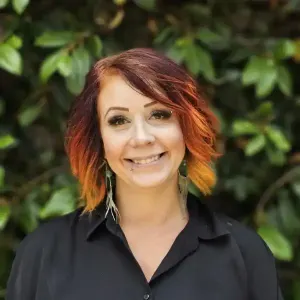
Brooke Bellomio
Assistant Clinical Director
PsyD

Yasamine Pahlevanlou
Physician Assistant
PA-C

Brynn Waddington
Physician Assistant
PA-C
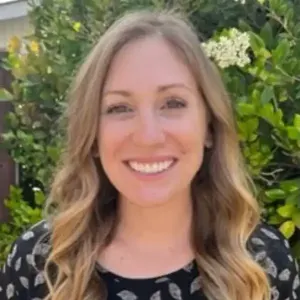
Michelle Roberts
Physician Assistant
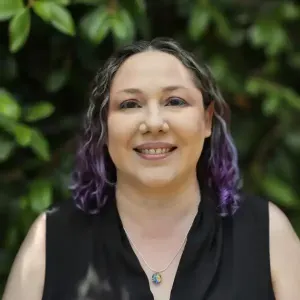
Jessica Styler
Primary Therapist
ASW
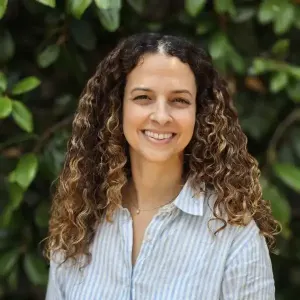
Liron Scherson
Primary Therapist

Victoria R. Leon
Primary Therapist
ASW

Rayanne Contrino
Therapist
ASW

Regan Richards
Therapist
ASW

Alexandra Cook
Registered Dietician
RD
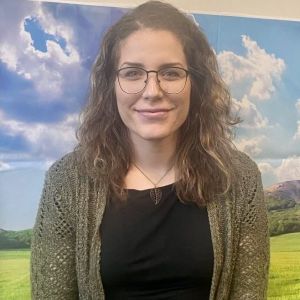
Natalie Osman
Registered Dietician
RD

Adrianne DeRosa
Exercise Therapist
CSCS
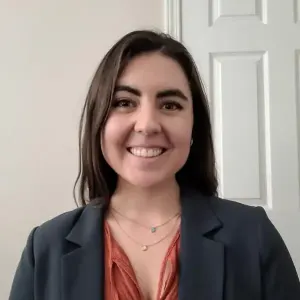
Emily Foote
Certified Exercise Physiologist
ACSM-CEP

Savannah Ojeda
Admissions Coordinator




Levels of Care






Your Care Options
Specializations
Eating Disorders
An eating disorder is a long-term pattern of unhealthy behavior relating to food. Most people with eating disorders have a distorted self-image.
Who We Treat
Adolescents
Teens receive the treatment they need for mental health disorders and addiction, with the added support of educational and vocational services.
Young Adults
Emerging adults ages 18-25 receive treatment catered to the unique challenges of early adulthood, like college, risky behaviors, and vocational struggles.
LGBTQ+
Addiction and mental illnesses in the LGBTQ+ community must be treated with an affirming, safe, and relevant approach, which many centers provide.
Approaches
Evidence-Based
A combination of scientifically rooted therapies and treatments make up evidence-based care, defined by their measured and proven results.
Family Involvement
Providers involve family in the treatment of their loved one through family therapy, visits, or both–because addiction is a family disease.
Holistic
A non-medicinal, wellness-focused approach that aims to align the mind, body, and spirit for deep and lasting healing.
Gender-Specific
Separate treatment for men or women can create strong peer connections and remove barriers related to trauma, shame, and gender-specific nuances.
Wellness
Wellness philosophies focus on the physical, mental, and spiritual wellness of each patient, helping them restore purpose with natural remedies.
Therapies
1-on-1 Counseling
Patient and therapist meet 1-on-1 to work through difficult emotions and behavioral challenges in a personal, private setting.
Meditation & Mindfulness
A practiced state of mind that brings patients to the present. It allows them to become fully aware of themselves, their feelings, and the present moment.
Expressive Arts
Creative processes like art, writing, or dance use inner creative desires to help boost confidence, emotional growth, and initiate change.
Family Therapy
Family therapy addresses group dynamics within a family system, with a focus on improving communication and interrupting unhealthy relationship patterns.
Nutrition Counseling
Nutritious food helps patients heal from within, setting them up for mental and bodily wellness as they learn about healthy eating.
Relapse Prevention Counseling
Relapse prevention counselors teach patients to recognize the signs of relapse and reduce their risk.
Conditions We Treat
Eating Disorders
An eating disorder is a long-term pattern of unhealthy behavior relating to food. Most people with eating disorders have a distorted self-image.
Substances We Treat
Co-Occurring Disorders
A person with multiple mental health diagnoses, such as addiction and depression, has co-occurring disorders also called dual diagnosis.
Languages
Aftercare
Care Designed for Your Needs
Personal Amenities
Amenities
Special Considerations
Healthy Meals are provided
Great food meets great treatment, with providers serving healthy meals to restore nutrition, wellbeing, and health.
Activities
Off-Site Activities
Off-Site Amenities






